Taking care of your skin is important, especially during your teenage years. At 18, your skin is still developing and can be affected by hormonal changes, stress, and environmental factors. Establishing a good skincare routine early on can help prevent future skin issues and keep your skin looking healthy and radiant.
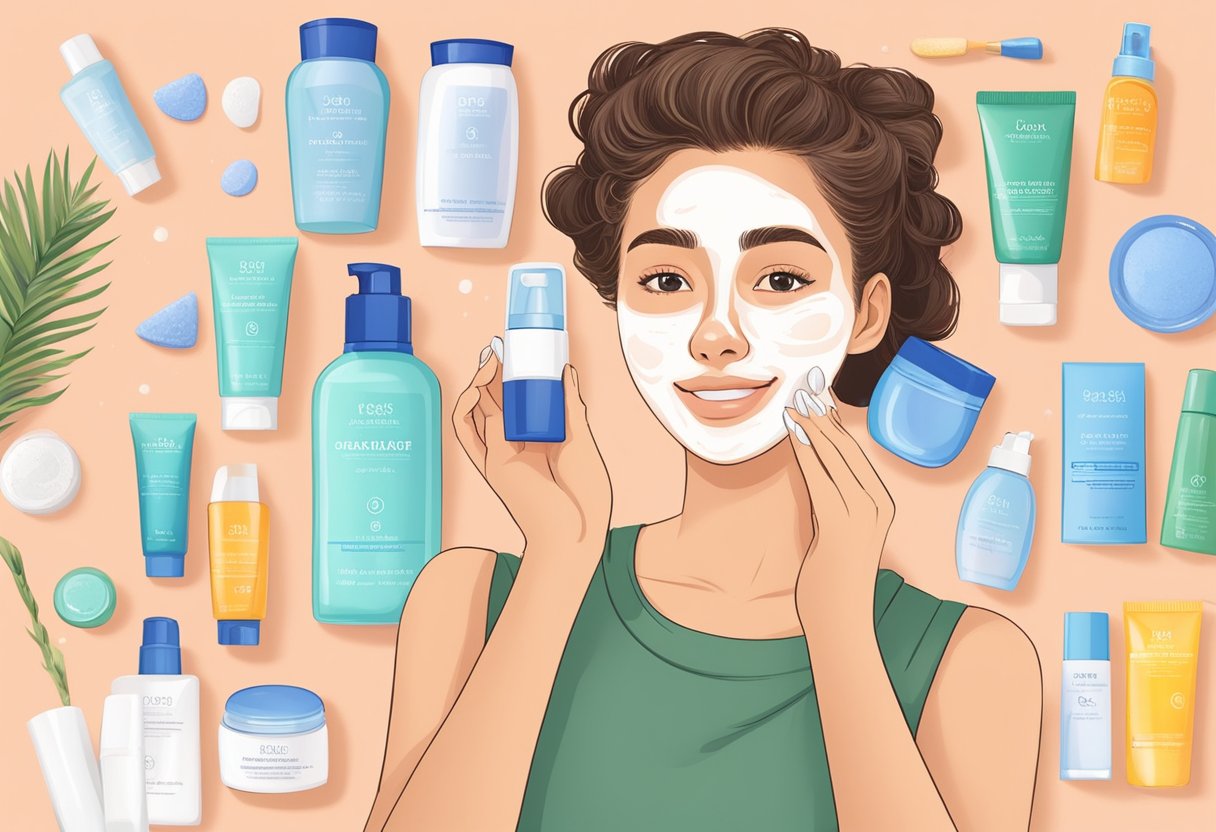
A basic skincare routine for an 18-year-old should include cleansing, moisturizing, and sun protection. Cleansing should be done twice a day, in the morning and at night, to remove dirt, oil, and makeup. Look for a gentle cleanser that won’t strip your skin of its natural oils. Follow up with a moisturizer to keep your skin hydrated and prevent dryness. Sun protection is also important, even on cloudy days. Choose a broad-spectrum sunscreen with an SPF of at least 30 and reapply every two hours if you’re spending time outdoors.
It’s also important to address any specific skin concerns you may have. If you’re dealing with acne, look for products that contain salicylic acid or benzoyl peroxide to help clear up breakouts. If you have dry skin, opt for a moisturizer that contains hyaluronic acid to help hydrate your skin. And if you have sensitive skin, look for products that are fragrance-free and hypoallergenic. By tailoring your skincare routine to your individual needs, you can help keep your skin looking healthy and glowing.
Understanding Your Skin Type
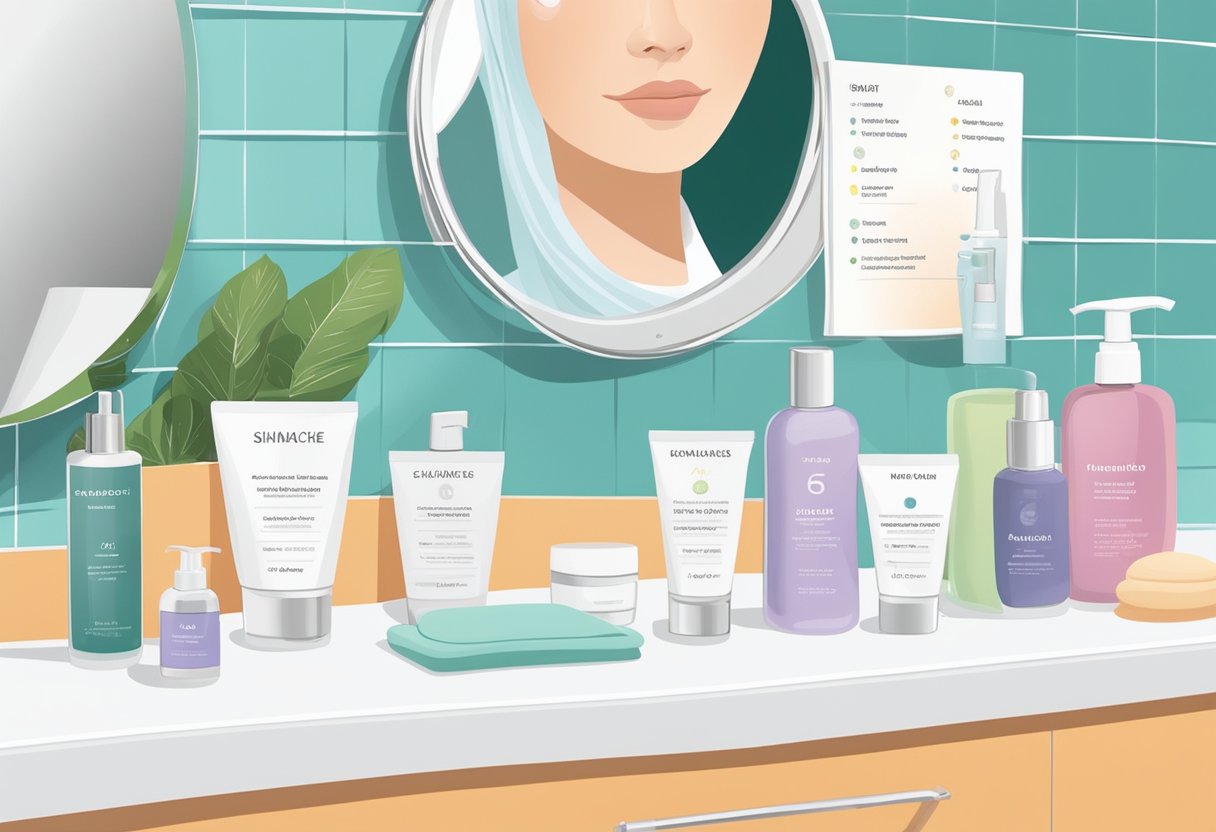
When it comes to skincare, understanding your skin type is essential to create a routine that works for you. Here are the four most common skin types and how to identify them:
Oily Skin
People with oily skin tend to have enlarged pores and a shiny complexion. This is because their skin produces an excess of sebum, which can lead to acne and breakouts. To care for oily skin, it’s important to use products that help regulate oil production without stripping the skin of its natural moisture. Look for oil-free or non-comedogenic products that won’t clog your pores.
Dry Skin
Dry skin often feels tight and itchy, and may appear flaky or rough. This is because it doesn’t produce enough oil to keep the skin moisturized. To care for dry skin, it’s important to use products that hydrate and nourish the skin. Look for products with ingredients like hyaluronic acid, glycerin, and ceramides, which help to lock in moisture.
Combination Skin
Combination skin is a mix of oily and dry skin, with some areas of the face being oilier than others. This can make it difficult to find products that work for all areas of the face. To care for combination skin, it’s important to use products that balance oil production without drying out the skin. Look for products that are gentle and non-irritating, and avoid using harsh exfoliants or astringents.
Sensitive Skin
Sensitive skin is prone to irritation and redness, and may react negatively to certain ingredients or products. To care for sensitive skin, it’s important to use products that are gentle and non-irritating. Look for products that are fragrance-free and hypoallergenic, and avoid using products with harsh chemicals or exfoliants.
By understanding your skin type and using products that cater to its specific needs, you can create a skincare routine that works for you. Remember to be patient and consistent with your routine, and don’t be afraid to switch up your products if something isn’t working for you.
Daily Skincare Fundamentals
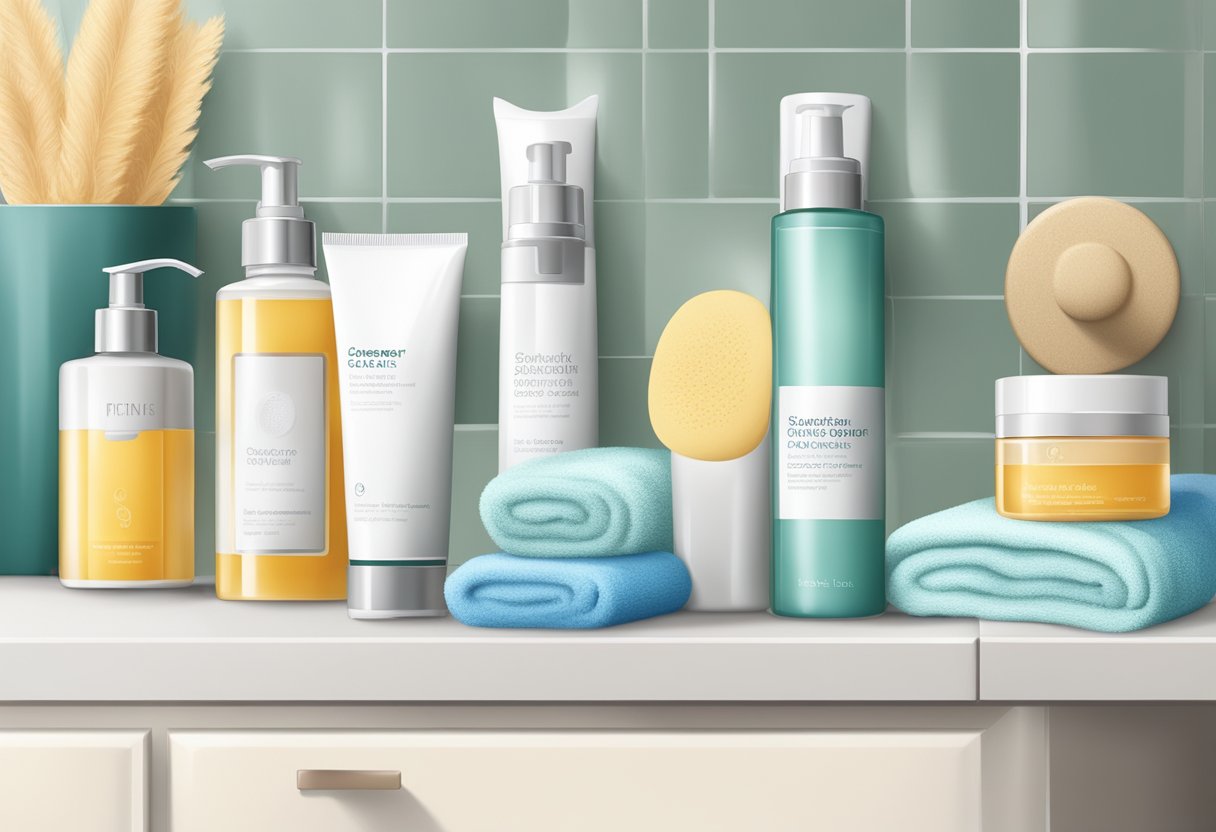
Cleansing
Cleansing is the first and most important step in any skincare routine. It helps to remove dirt, oil, and makeup from the skin, which can clog pores and lead to breakouts. For an 18-year-old, it is recommended to use a gentle, fragrance-free cleanser that is suitable for their skin type. A cleanser that contains salicylic acid or benzoyl peroxide can be used if they have acne-prone skin. It is important to wash the face twice a day, once in the morning and once at night, to keep the skin clean and healthy.
Moisturizing
Moisturizing is the second step in any skincare routine. It helps to keep the skin hydrated and prevents dryness, which can lead to premature aging. For an 18-year-old, it is recommended to use a lightweight, oil-free moisturizer that is suitable for their skin type. A moisturizer that contains hyaluronic acid or glycerin can be used if they have dry skin. It is important to apply moisturizer twice a day, once in the morning and once at night, to keep the skin soft and supple.
Sun Protection
Sun protection is the third and final step in any skincare routine. It helps to prevent sun damage, which can lead to premature aging and skin cancer. For an 18-year-old, it is recommended to use a broad-spectrum sunscreen with an SPF of at least 30. The sunscreen should be applied to all exposed areas of the skin, including the face, neck, and hands. It is important to reapply sunscreen every two hours, especially if they are outdoors or swimming. Wearing protective clothing, such as a hat and sunglasses, can also help to prevent sun damage.
Weekly Skincare Enhancements
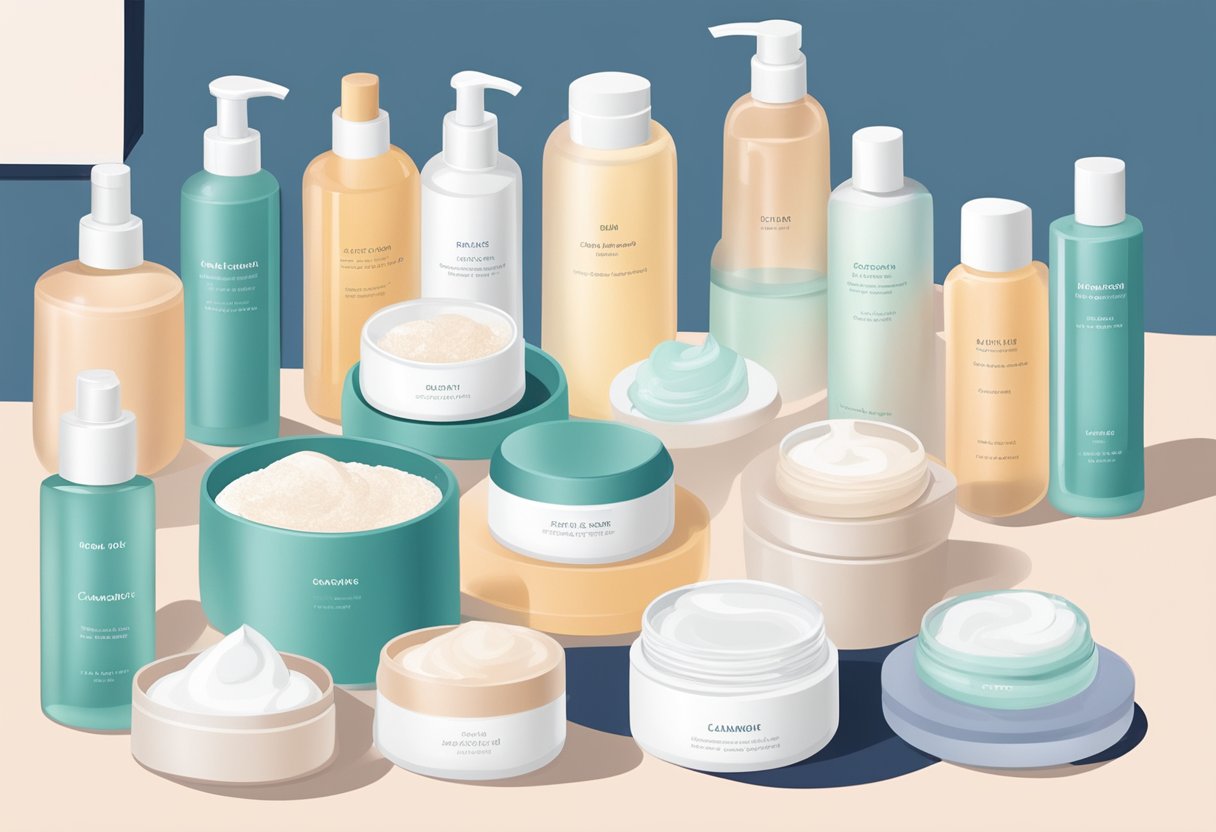
As an 18-year-old, it’s important to maintain a consistent daily skincare routine. However, incorporating weekly skincare enhancements can take your routine to the next level. Here are some recommended weekly enhancements:
Exfoliation
Exfoliation is the process of removing dead skin cells from the surface of the skin. It helps to unclog pores, reduce acne, and improve skin texture. For an 18-year-old, it’s recommended to exfoliate once a week. It’s important to choose the right exfoliator based on your skin type. A gentle exfoliator is recommended for those with sensitive skin, while those with oily skin can use a stronger exfoliator. It’s important not to over-exfoliate as it can damage the skin’s natural barrier.
Face Masks
Face masks are a great way to give your skin a boost of hydration, nutrients, and antioxidants. They can help to unclog pores, reduce acne, and improve skin texture. For an 18-year-old, it’s recommended to use a face mask once a week. There are different types of face masks available, such as clay masks, sheet masks, and peel-off masks. It’s important to choose the right face mask based on your skin type and concerns.
Spot Treatments
Spot treatments are products that are designed to target specific areas of the skin, such as pimples, blackheads, and whiteheads. They can help to reduce inflammation, unclog pores, and prevent breakouts. For an 18-year-old, it’s recommended to use spot treatments once a week. It’s important to choose the right spot treatment based on your skin type and concerns. Some common ingredients in spot treatments include salicylic acid, benzoyl peroxide, and tea tree oil.
Incorporating these weekly skincare enhancements can help to improve the overall health and appearance of your skin. Remember to choose products that are suitable for your skin type and concerns, and to avoid over-exfoliating or overusing spot treatments.
Navigating Skincare Products
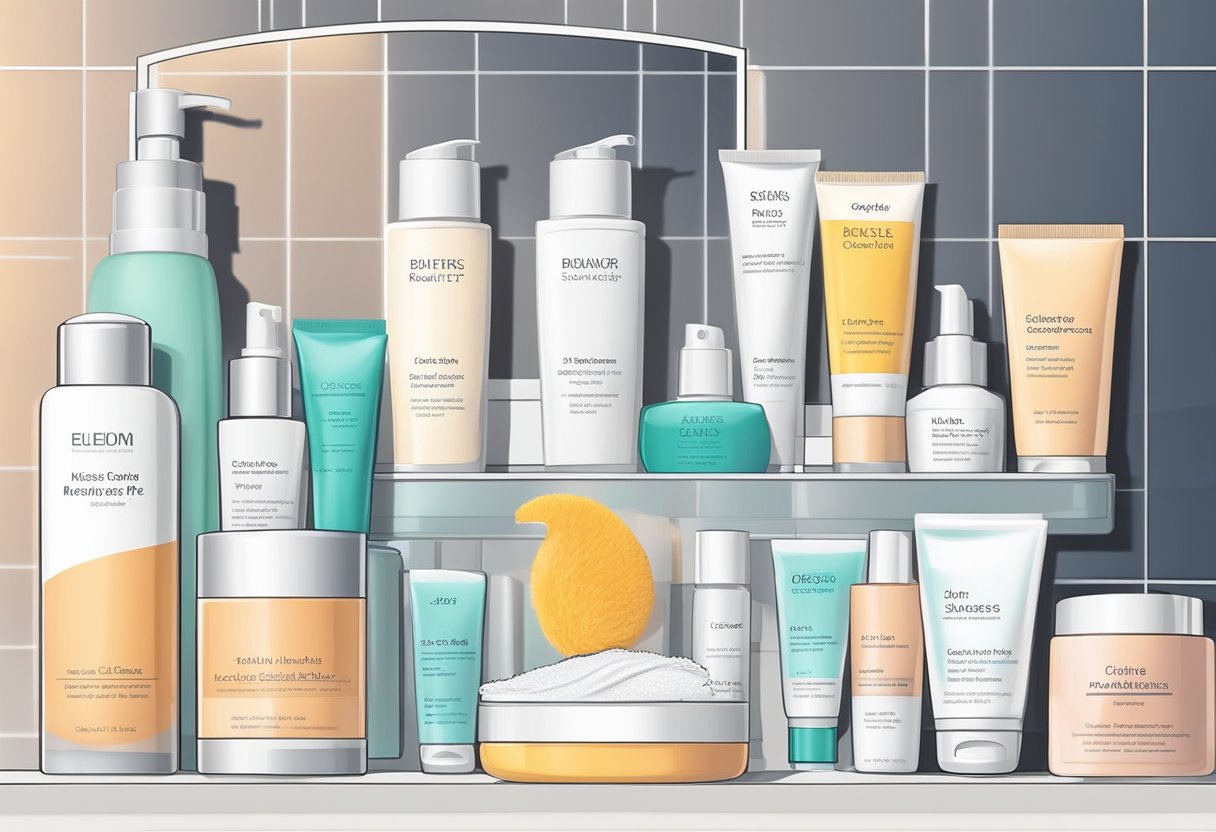
When it comes to skincare products, it can be overwhelming to navigate the vast array of options available on the market. However, with a little bit of knowledge and research, it is possible to find products that are effective and safe for use.
Ingredients to Look for
One important aspect to consider when choosing skincare products is the ingredients. Some ingredients are known to be particularly beneficial for the skin, such as:
- Hyaluronic acid: This ingredient is known for its ability to hydrate and plump the skin, making it look smoother and more youthful.
- Retinol: A derivative of vitamin A, retinol is a powerful anti-aging ingredient that can help to reduce the appearance of fine lines and wrinkles.
- Vitamin C: This antioxidant helps to brighten the skin and even out skin tone, while also protecting against environmental damage.
When choosing products, look for those that contain these ingredients in effective concentrations. It’s also important to note that some ingredients may cause irritation or allergic reactions in some individuals, so it’s always a good idea to patch test new products before using them on the face.
Avoiding Harmful Substances
While there are many beneficial ingredients to look for in skincare products, there are also some harmful substances to avoid. These include:
- Parabens: These preservatives have been linked to hormone disruption and other health concerns.
- Phthalates: These chemicals are often found in fragrances and have been linked to reproductive and developmental issues.
- Sulfates: These harsh detergents can strip the skin of its natural oils and cause dryness and irritation.
When choosing products, look for those that are free of these harmful substances. Many brands now offer “clean” or “green” skincare options that are formulated without these ingredients.
Overall, navigating skincare products can be a bit daunting, but with a little bit of knowledge and research, it is possible to find products that are effective and safe for use. By looking for beneficial ingredients and avoiding harmful substances, individuals can create a skincare routine that works for them and helps to keep their skin looking and feeling healthy.
Seasonal Skincare Adjustments

As the seasons change, so do the needs of your skin. It’s important to adjust your skincare routine accordingly to ensure that your skin stays healthy and glowing all year round. Here are some tips for making seasonal skincare adjustments:
Spring
In the spring, the weather starts to warm up and your skin may start to produce more oil. To combat this, switch to a lighter moisturizer and consider using a mattifying primer to keep your skin looking fresh and shine-free. You may also want to add a gentle exfoliating scrub to your routine to help remove dead skin cells and brighten your complexion.
Summer
Summer weather can be harsh on your skin, so it’s important to protect it from the sun’s harmful rays. Make sure to use a broad-spectrum sunscreen with an SPF of at least 30, and reapply every two hours if you’re spending time outdoors. You may also want to switch to a lighter moisturizer and use a hydrating mist to keep your skin feeling refreshed.
Fall
As the weather starts to cool down, your skin may start to feel drier. Switch to a heavier moisturizer to help lock in moisture and prevent dryness. You may also want to add a facial oil to your routine to help nourish and hydrate your skin.
Winter
Winter weather can be especially harsh on your skin, so it’s important to take extra care during this season. Switch to a heavy-duty moisturizer to help protect your skin from the cold, dry air. You may also want to use a facial oil or serum to help boost hydration. Don’t forget to continue using sunscreen, as the sun’s rays can still be damaging even in the winter months.
By making these simple seasonal skincare adjustments, you can help keep your skin healthy and glowing all year round.
Long-Term Skincare Strategies
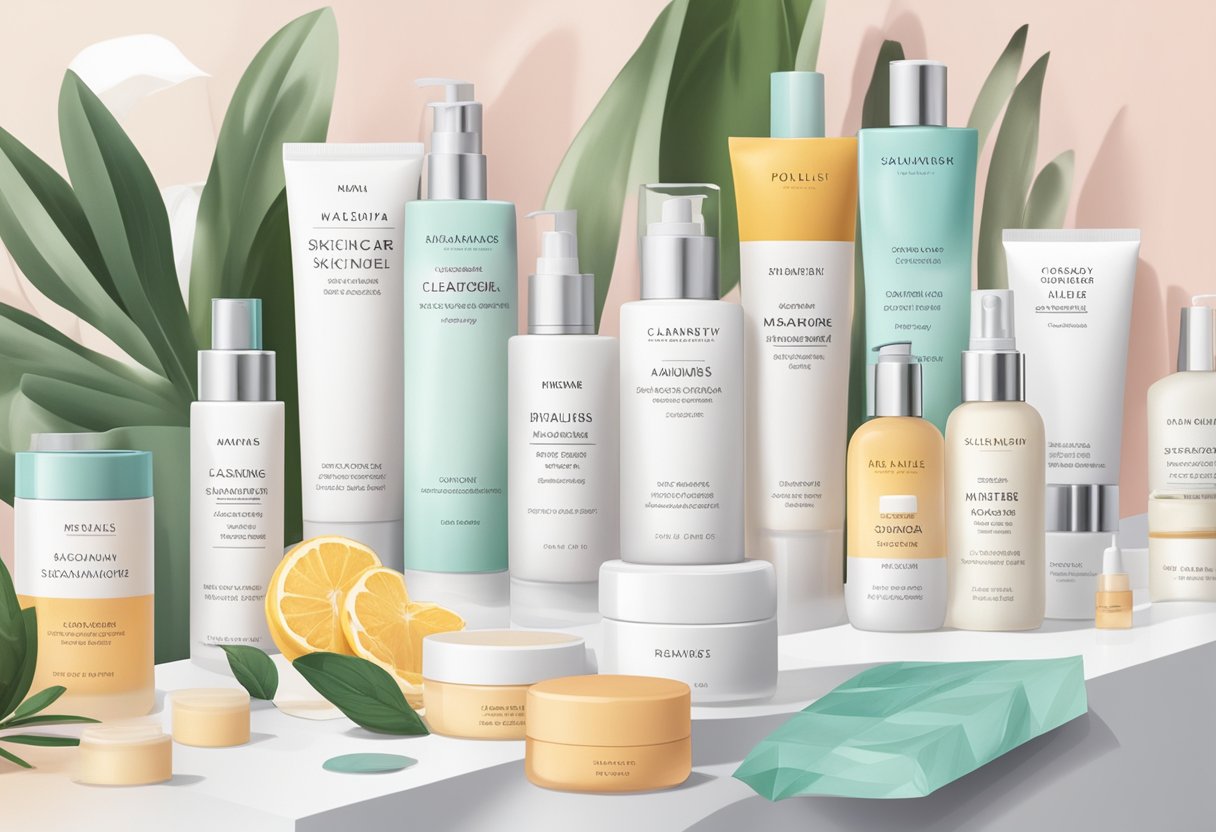
Taking care of one’s skin is essential, especially during the teenage years when the skin is still developing. But it’s important to remember that skincare is not just a short-term solution for acne or other skin problems. It’s a long-term strategy that can help maintain healthy and youthful skin throughout one’s life.
Here are some long-term skincare strategies that 18-year-olds can adopt to keep their skin healthy and glowing:
1. Sun Protection
One of the most important long-term skincare strategies is sun protection. Sun damage can cause premature aging, wrinkles, and even skin cancer. Therefore, it’s important to use sunscreen with at least SPF 30 every day, even on cloudy days. Wearing protective clothing such as hats and sunglasses can also help prevent sun damage.
2. Moisturizing
Moisturizing is another important long-term skincare strategy. It helps keep the skin hydrated, which can prevent wrinkles and other signs of aging. Using a moisturizer with ingredients like hyaluronic acid, glycerin, and ceramides can help keep the skin hydrated and healthy.
3. Healthy Lifestyle
Maintaining a healthy lifestyle is also essential for long-term skincare. Eating a balanced diet, drinking plenty of water, and getting enough sleep can help keep the skin healthy and glowing. Regular exercise can also help improve blood circulation, which can promote healthy skin.
4. Regular Skincare Routine
Finally, having a regular skincare routine is crucial for long-term skincare. Cleansing, toning, and moisturizing the skin twice a day can help keep it clean and healthy. Using products with ingredients like salicylic acid, benzoyl peroxide, and retinoids can also help prevent acne and other skin problems.
In conclusion, taking care of one’s skin is not just a short-term solution for skin problems. It’s a long-term strategy that can help maintain healthy and youthful skin throughout one’s life. By adopting these long-term skincare strategies, 18-year-olds can keep their skin healthy and glowing for years to come.
Frequently Asked Questions
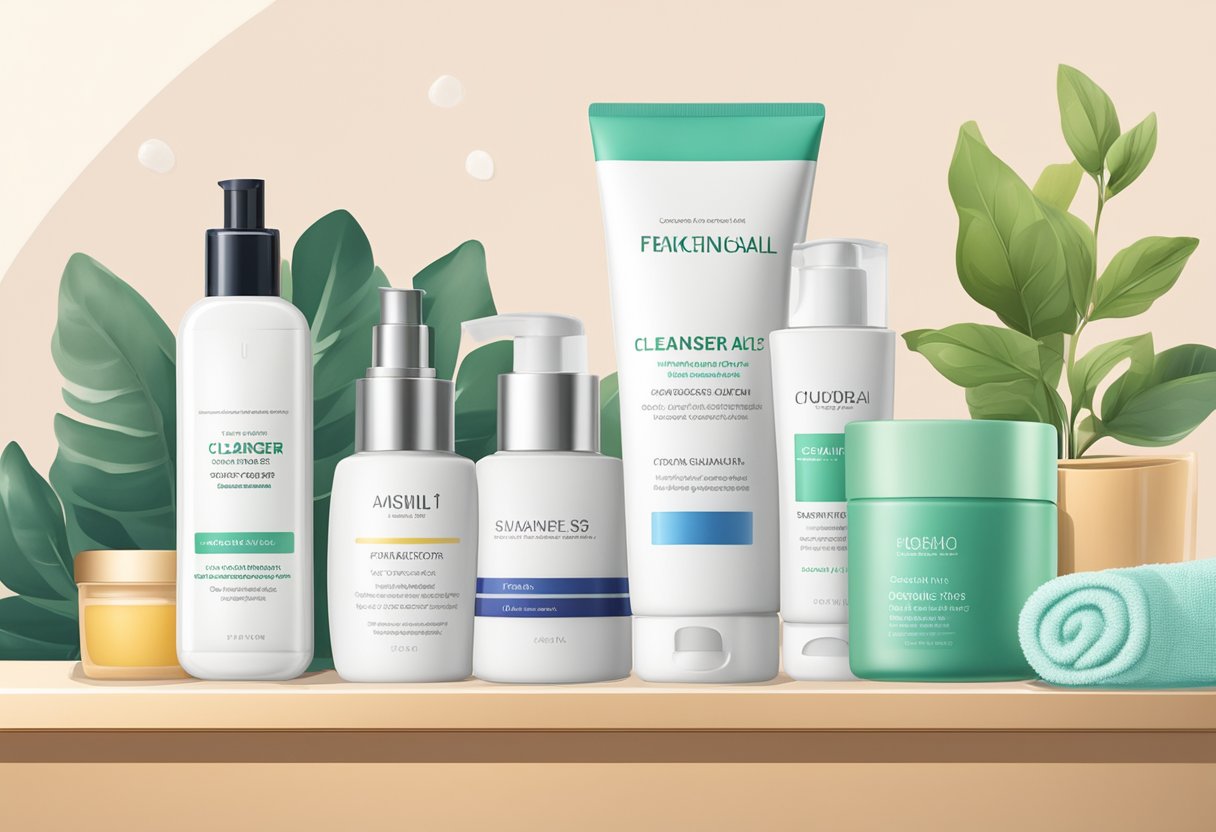
What are the essential steps in a skincare routine for an 18-year-old?
An essential skincare routine for an 18-year-old should include cleansing, moisturizing, and sun protection. Cleansing helps to remove dirt, oil, and makeup from the skin. Moisturizing helps to keep the skin hydrated and healthy. Sun protection is crucial to prevent premature aging and skin cancer.
How does a skincare routine differ for teenage boys and girls?
The basic steps for a skincare routine are the same for both teenage boys and girls. However, there may be differences in the products used. For example, teenage boys may prefer a lightweight moisturizer that absorbs quickly, while teenage girls may prefer a moisturizer that also provides some coverage.
What are the key ingredients to look for in skincare products for teens?
When looking for skincare products for teens, it is important to look for ingredients that are gentle and non-irritating. Some key ingredients to look for include salicylic acid, benzoyl peroxide, and alpha hydroxy acids. These ingredients can help to unclog pores, reduce inflammation, and improve skin texture.
Can you suggest a basic skincare routine for an 18-year-old with acne-prone skin?
For an 18-year-old with acne-prone skin, a basic skincare routine should include a gentle cleanser, a toner with salicylic acid, a lightweight moisturizer, and a sunscreen. It is also important to avoid picking or squeezing pimples, as this can lead to scarring and further breakouts.
How often should an 18-year-old exfoliate, and what type of exfoliant should they use?
An 18-year-old should exfoliate once or twice a week, depending on their skin type. It is important to choose a gentle exfoliant, such as a scrub with microbeads or a chemical exfoliant with alpha hydroxy acids. Over-exfoliating can lead to irritation and damage to the skin barrier.

